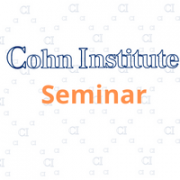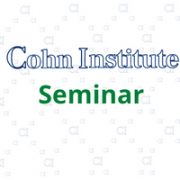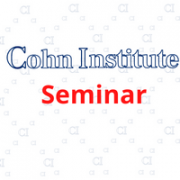Research Seminar May 13th: György Geréby - The Arguments for and against the Eternity of the World in the Late Thirteenth Century: Aquinas, Peckham and Scotus
Research Seminar May 13th: György Geréby - The Arguments for and against the Eternity of the World in the Late Thirteenth Century: Aquinas, Peckham and Scotus. The seminar will take place in Gilman 449 at 18:00.
György Geréby
The Arguments for and against the Eternity of the World in the Late Thirteenth Century: Aquinas, Peckham and Scotus
The eternity of the world follows both from Aristotelian and Plotinian-Neoplatonic theological assumptions. As the philosophically (that is, scientifically) established standard view it contradicted the Judaic/Christian intellectual positions about the creation and a finite linear world-time. Various arguments were deployed against the eternalist position. During the second half of the thirteenth century, however, a complex debate emerged among various thinkers of High Scholasticism concerning the provability of a finite past. This talk will concentrate on the technically sophisticated debates of the late thirteenth century between Bonaventure, Aquinas, John Peckham and Duns Scotus. The subtle discussions highlight a number of important issues: the role of rational method in theology, the nature of the infinite (used in nearly every argument) and the role of counterfactual thought experiments. As for the historical mind, it is a showcase for 1) the independence and creativity of scholastic thinkers, 2) for the problem of development, continuity and rupture in philosophy.





